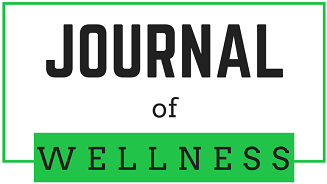
Abstract
Introduction: For healthcare workers, the COVID-19 pandemic resulted in increased workload, work related stress and patient acuity potentially leading to burnout, secondary traumatic stress (STS), and sleep disruptions. This study aims to assess the prevalence of burnout and STS symptoms, as well as sleep disturbances among healthcare personnel working in the United States during the pandemic.
Methods: Healthcare workers from all disciplines and settings in the United States completed a cross-sectional survey about work and personal characteristics from January 20-March 1, 2021. Participants reported on symptoms of burnout, STS, and sleep disruptions.
Results: A total of 360 participants in the United States responded to the survey with representation from 32 states. The average number of reported burnout symptoms (M = 5.28; out of a total of 12 possible symptoms), STS symptoms (M = 2.88; 8 possible), and sleep disturbances (M = 2.29; 5 possible) suggest a high prevalence of negative emotional and wellness experiences among healthcare workers during the pandemic. No differences based on profession were identified. A significant difference in burnout by age and time in the profession demonstrated the youngest participants experienced more burnout symptoms (F = 8.04, p < 0.001), as well as those with fewer years of experience in their profession (F = 6.78, p < 0.001). Correlational analyses demonstrated that increased sleep disturbances had a significant association with increased burnout and STS symptoms, as well as perceived impact of the COVID-19 pandemic. Additionally, the number of STS and burnout symptoms were found to have a moderate, positive correlation, suggesting a relationship between burnout and STS.
Conclusion: Most healthcare professionals working since COVID-19 experience symptoms of burnout, STS, and sleep disturbances. Younger healthcare workers may be more susceptible to negative emotional coping and sleep-related changes. Results suggest symptoms of burnout, STS, and sleep disturbance are interrelated, and also affected by perceived impact of the pandemic. These findings have implications for the state of healthcare workers as a whole.
DOI
10.55504/2578-9333.1088
Recommended Citation
Miller, Laura K. and Pehlke, Sarah
(2022)
"Evaluating Burnout, Secondary Traumatic Stress, and Sleep Disturbances in Healthcare Professionals During a Global Pandemic,"
Journal of Wellness: Vol. 4
:
Iss.
1
, Article 4.
DOI: https://doi.org/10.55504/2578-9333.1088
Available at:
https://ir.library.louisville.edu/jwellness/vol4/iss1/4
Included in
Bioethics and Medical Ethics Commons, Health and Medical Administration Commons, Health and Physical Education Commons, Nursing Commons, Psychiatric and Mental Health Commons, Public Health Commons
